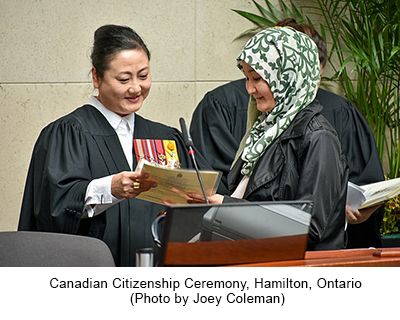When you are advocating to government, it is important to know which level of government is responsible for the issue you are talking about.
The responsibilities of the federal, provincial and territorial governments are divided up in Canada’s Constitution.
Federal level
At the federal level, the government is responsible for issues that are important nationally. These things might seem a little bit further from your everyday life.

Some of the things that the federal government is responsible for include:
- Foreign policy & defense
- Income security (e.g. CPP-D, Employment Insurance, pensions, etc.)
- Citizenship & immigration
- Banking & monetary policy
- Scientific research
- Criminal law
- Postal services
Provincial or territorial level
At the provincial or territorial level, the government is responsible for more local issues and they deliver many services to residents. They might touch your everyday life more often.

The provincial government’s responsibilities include:
- Health system/hospitals
- Infrastructure
- Education
- Energy
- Community and social services
- Social assistance
- Regulating municipalities
Municipal level
At the municipal level, the government is responsible for local interests. There are the sorts of things that might be right outside your door. Municipal government responsibilities include:
- Ambulance, fire, and police services
- Building permits and zoning
- Community and recreation facilities
- City roads and sidewalks
- Water supply and sewage
- Public transportation
Shared responsibility
There are some areas where governments share power. For example, all three levels of government have some responsibility for affordable housing.
- Provincial and territorial governments are the most responsible for how affordable housing within their province or territory will be developed and managed. They fund many affordable housing projects.
- The federal government provides some funding for affordable housing projects and also provides tax benefits to try to make housing more affordable for renters and buyers.
- Municipal governments decide what types of housing can be built in different neighbourhoods within their municipality. They approve new affordable housing developments.
